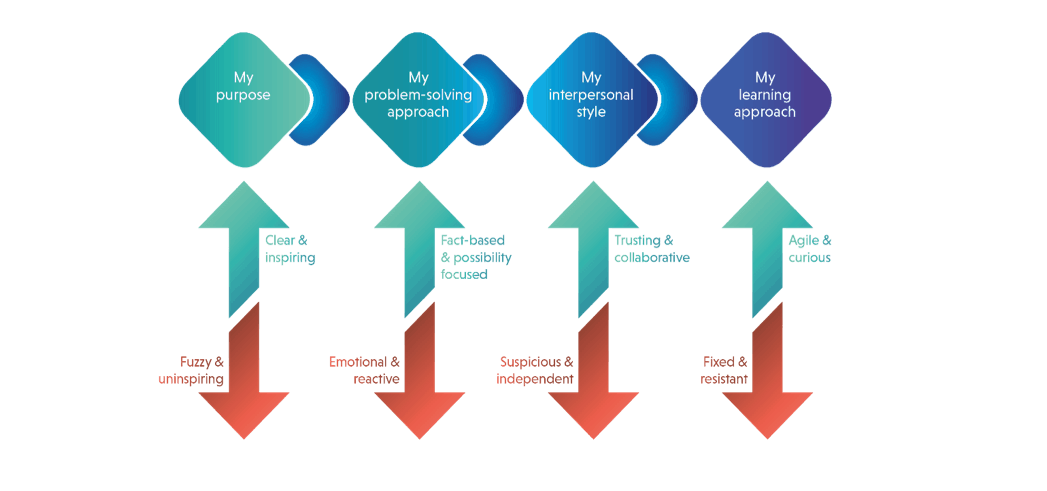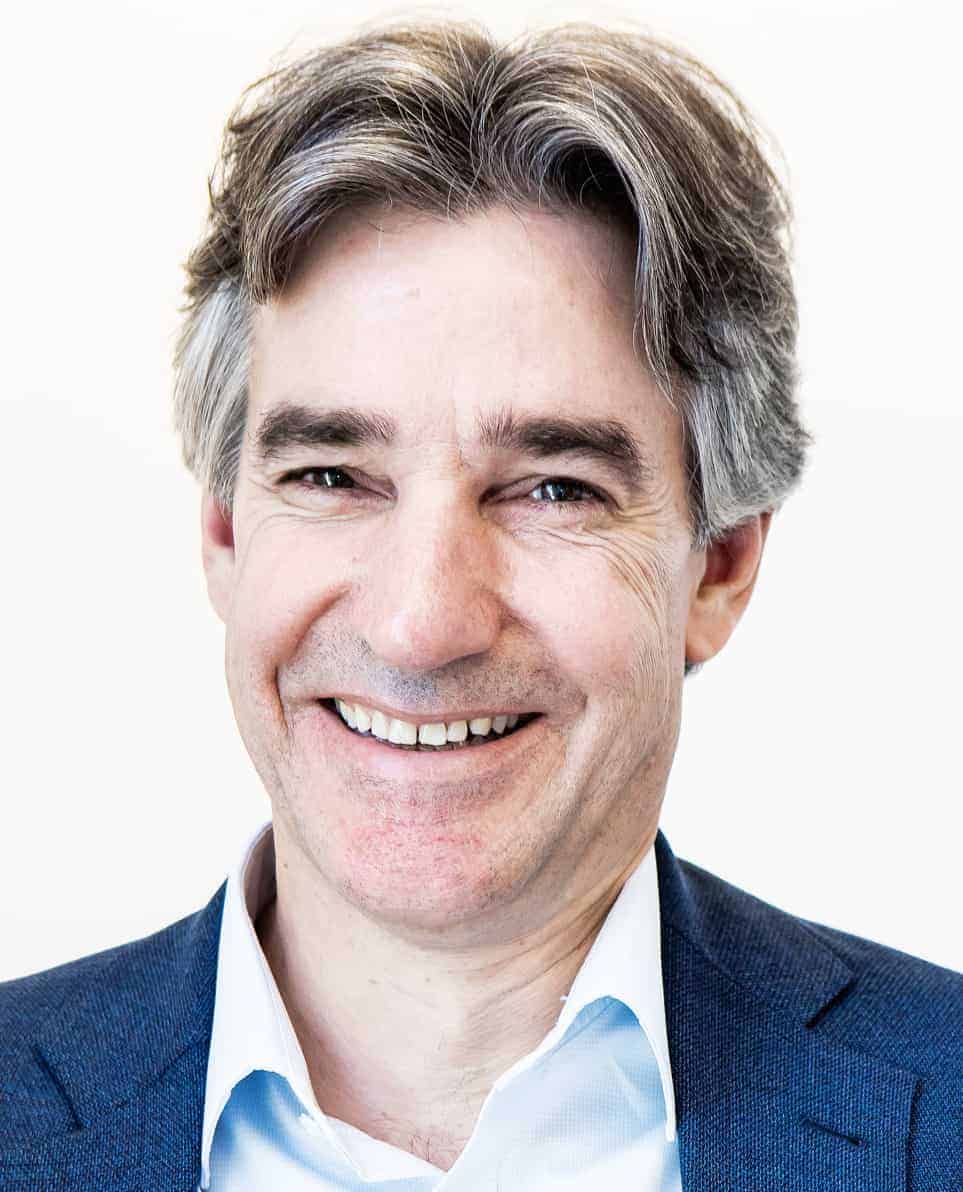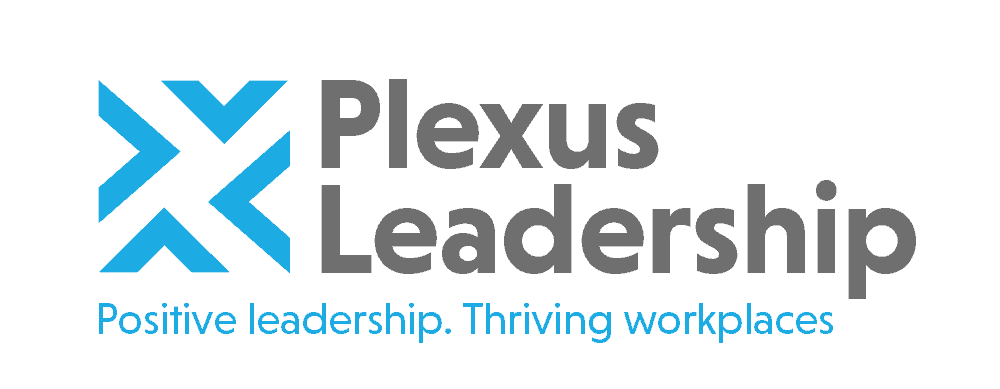Today’s business leaders are faced with unprecedented challenges, complexity and uncertainty. This has been highlighted by the COVID-19 pandemic, a global “Black Swan” (unpredictable and hugely impactful on the economy) crisis that has shut down huge parts of the economy and placed unprecedented demands on our organizations and established way of life. Choosing how one responds to challenging and stressful situations like this are “moments of truth” and will determine leaders’ effectiveness and their impact on the performance of teams and the entire organization.
It is therefore hardly surprising that mindset has emerged as a core leadership and general topic in businesses today. Many businesses like Microsoft have embraced what Stanford Professor Carol Dweck refers to as the “growth mindset”. According to Dweck, people with fixed mindset don’t believe they can grow and learn throughout their lives. They assume talents are innate or ‘fixed. They therefore look for approval for qualities and know-how they already possess. Conversely, people with a growth mindset are curious, open-minded and seek ongoing learning, development and stretch.
Many other academics and practitioners have talked and written about the performance and life advantages of a positive mindset. In fact, positive thinking was popularized in the early 1950’s when author and minister, Dr Norman Vincent Peale, published the best-selling book, The Power of Positive Thinking. This has fuelled an enormous self-help industry characterized by dozens of techniques such as solutions-based problem-solving, mindfulness, meditation, positive self-talk and appreciative inquiry. While some of these techniques are backed by good science, many provide little more value than ‘snake oil’ solutions.
Mindset can be defined as our system of attitudes and beliefs that shape our thoughts and actions. It is the ‘lens’ through which leaders view and make sense of the world and events around them.
I have been fascinated by the emerging research underpinning this work for the last decade or so. In my recent book, Optimise Your Strengths, we point out the performance advantage of leaders and teams who adopt a “Path of Possibility” versus a “Path of Limitation” mindset. Leaders and teams choosing the positive path tend to focus on strengths, successes and possibilities, while leaders and teams choosing the limiting mindset focus on deficits, weaknesses and problems. Dozens of clients we worked with when I ran Strengthscope® found this distinction very powerful and it facilitated shifts in both mindsets and performance of individuals, teams and even whole organisations.
Building on this approach, I have developed a more complete and robust framework for assessing and developing a leader’s mindset. Rather than seeing mindset in a binary way, as simply positive versus negative or fixed versus growth, it considers 4 key pillars of a leader’s system of beliefs and attitudes that shape the way they interact with the organization and world around them. These 4 pillars are Purpose, Problem-solving, Relationships, and Learning. The extreme points of each of these 4 pillars is illustrated below, although most leaders will find themselves at different points on these 4 continuums rather than at the extremes.
 Leaders’ mindsets aren’t fixed. Leaders can move from the positive to the negative end of the continuum depending on the leader’s personality, their maturity and how they choose to subjectively interpret events and challenges that arise. However, their mindset will impact the way they approach their role, including how effective they become at learning, problem-solving and decision-making. It will also determine their performance, confidence and wellbeing.
Leaders’ mindsets aren’t fixed. Leaders can move from the positive to the negative end of the continuum depending on the leader’s personality, their maturity and how they choose to subjectively interpret events and challenges that arise. However, their mindset will impact the way they approach their role, including how effective they become at learning, problem-solving and decision-making. It will also determine their performance, confidence and wellbeing.
The key for leaders is to become more conscious of these different aspects of their mindset at any point in time and how this will impact themselves, their team and the organization. This will enable them to recalibrate and change course to ensure their mindset contributes to effective decisions, habits and outcomes, multiplying value for the team and organization rather than eroding it.
For example, at this enormously challenging time, leaders can choose to learn how to recover from the crisis and build greater resilience, agility and risk preparedness in their businesses. Alternatively, they can bury their head in the sand and blame the government, their bank or fate for all their problems. Those that choose a solutions-oriented, learning mindset are more likely to recover quicker from the crisis. As someone I admire greatly recently pointed out, when life throws you lemons you need to learn to make lemonade pretty darn quickly in order to survive.
Research on mindset is far from conclusive and even Professor Dweck’s popular “growth mindset” has attracted a lot of critique in recent academic research. However, in my own experience, mindset is hugely powerful for leaders in helping them build self-awareness and gain more perspective on how their assumptions and beliefs shape their decisions, actions and relationships. It is a concept that deserves to be incorporated into all leadership and coaching solutions and one that will doubtless attract further research and necessary scrutiny in the years ahead.
Other Posts

About the Author
James Brook
Founder and MD | Leadership Consultant | Organizational Psychologist
James is a leadership consultant, organizational psychologist and executive coach. He has over 25 years’ experience working with leaders, teams and organizations globally to optimize their performance, talent and future success. He specializes in positive leadership, thriving workplaces, collaboration and influencing, organizational change and transformation, accelerating innovation and coaching executives and leaders in innovative sectors including Tech, Digital, E-commerce and Life Sciences.
Before setting up Plexus Leadership, James held leadership roles in HR and Talent Management in the UK and abroad with companies such as NatWest, Yahoo! and Novo Nordisk Pharmaceuticals. After this, he founded and led several talent and leadership consulting and assessment businesses, including Strengthscope®, an online strengths assessment and development business serving a wide range of UK and global clients. James grew this venture into a global market leader before selling the business in 2018.
James has supported, advised and coached leaders and teams globally across diverse industries and geographies. Clients he has worked with include Allen & Overy, Commvault, Equinor, Facebook, GSK, Hilton, John Lewis, Novartis Pharmaceuticals, NHS, Oracle, Sainsbury’s, Swiss Re, Tesco, Takeda Pharmaceuticals, WSP and Yahoo!.
James has a Master’s in Organizational Psychology, an MBA, an Advanced Diploma in Executive Coaching and a Harvard Business qualification in Sustainable Business Strategy. He is a member of the Institute of Directors, the Association of Business Psychologists and a Fellow of the Chartered Institute of Personnel and Development (FCIPD). He is currently undertaking a PhD in Organizational Psychology examining the start-up experiences of Tech and Digital entrepreneurs.
James is a regular contributor and speaker on leadership, coaching, innovative talent management and the future of work. His most recent book, Optimize Your Strengths, explores how leaders can create thriving workplaces by inspiring and supporting people to optimize their potential and teamwork to deliver breakthrough results.





